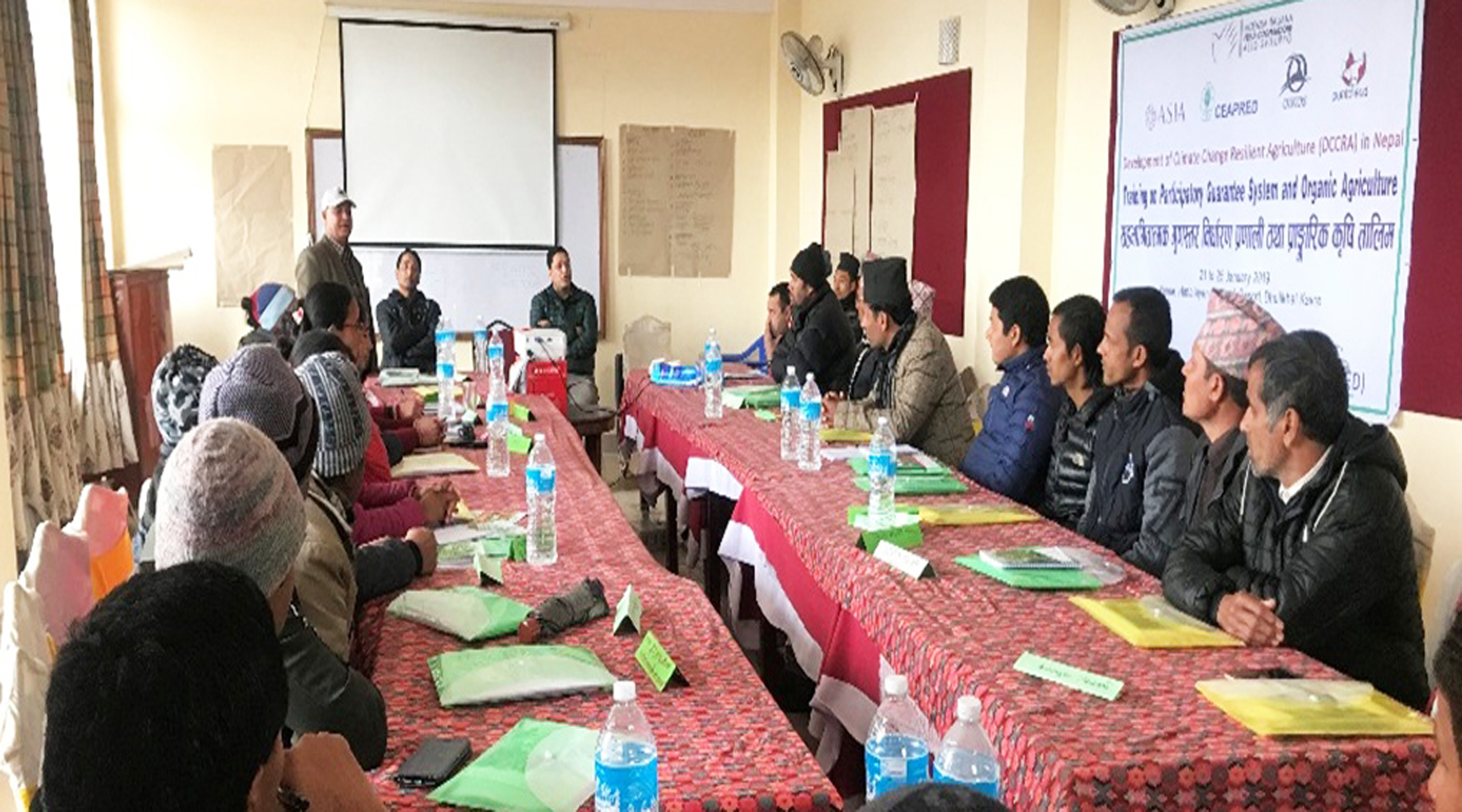Five days residential training conducted on PGS and Organic Agriculture Dhulikhel, Kavre

A five days residential training was conducted on Participatory Guarantee System (PGS) and Organic Agriculture from 21-25 January 2019 at Dhulikhel, Kavre. A total of 30 participants from Kavre, Sindhuli and Sindhupalchowk participated in the program.
Participatory Guarantee System (PGS) in DCCRA is a system of quality assurance of the products, not a system of production. Both PGS and third-party certification systems are based on the same principles of organic agriculture, so allowable inputs in PGS certified organic agriculture are generally the same as those in third-party certified organic agriculture. The fast growth of the PGS movement over the last few years reflects the need to include smallholder farmers in the organic movement. In developing countries like Nepal, most of the third-party certified farms rely on distant export markets to cover the cost of certification, so products from those farms are not available to local consumers. By bringing more farmers into a system of committed organic production, and linking that to direct and local sales, PGS offer much wider access of organic products to local consumers. PGS initiatives directly link up consumers and farmers and help to provide organic food at a lower cost to poor consumers. Meeting the needs of smallholder farmers and local consumers, PGS initiatives are poised to grow even more quickly, as awareness of organic continues to grow globally. In turn, PGS have become integral to the future growth of the organic movement. Without them, organic will remain the bastion of the rich and educated leaving the small farmers and consumers unable to benefit. So the organization has conducted two orientations and one, five days residential training on PGs and organic agriculture with the following objectives.
- to build the capacity of the participants, strengthen their knowledge and skill on key concept of PGS including key steps and tools to enable them to transfer the knowledge and skill to farmers.
- to establish and facilitate PGS group in the project areas.
- to allow an opportunity for the participants to understand on marketing linkage of organic product, partnership building among organic vendors/shops and so on.
 The training was conducted on participatory model providing and facilitating equal participation from the resource person and participants. It was based on relevant lecture sessions and practical field exercises together with participatory discussions, games, group interaction, group work and presentations and brain storming.
The training was conducted on participatory model providing and facilitating equal participation from the resource person and participants. It was based on relevant lecture sessions and practical field exercises together with participatory discussions, games, group interaction, group work and presentations and brain storming.
The overall impression of the training was found productive in terms of skills and knowledge transfer in a participatory way. The content of the training and the materials used for different sessions were based on the real need of PGS farmers. The training has made the participants determined in the production of organic produce following the standards of the PGS. It is believed that capacity of the participants has strengthened through increased knowledge and skills on key concepts on organic production and PGS implementation to enhance the life of the farmers and small holders through organic farming practices. PGS will be established at local level for quality assurance in the project areas. Acquired knowledge and skills in the training will allow the opportunity for the participants to understand on marketing linkage of organic product, partnership building among organic vendors/shops and offer every beneficiary farmer with individual or group certificate and access to market their products.

